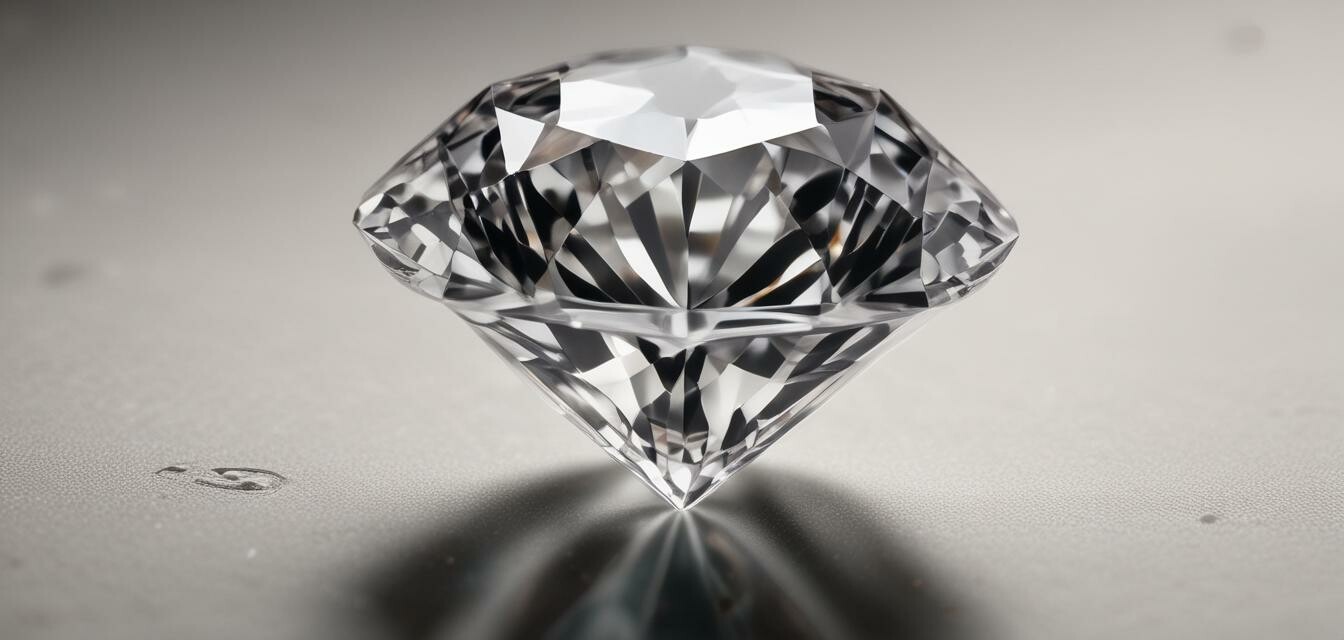
Understanding diamond certification
Key Takeaways
- Understanding diamond certification is crucial for making informed purchasing decisions.
- The four Cs - cut, color, clarity, and carat weight - are fundamental in the grading process.
- Different grading organizations exist, each with its own set of standards and practices.
- C certified diamonds typically come with a grading report, ensuring authenticity and quality.
- Research and education on certification can significantly enhance your jewelry shopping experience.
When it comes to purchasing diamonds, understanding the significance of certification can play a vital role in ensuring you receive a quality product. Diamond certification is the process through which gems are graded based on various criteria, commonly known as the four Cs: cut, color, clarity, and carat weight. In this article, we will explore the importance of diamond certification, how the grading process works, and which organizations are responsible for certifying diamonds.
The importance of diamond certification
Diamond certification provides invaluable information about the quality and authenticity of a diamond. Here are some reasons why it's essential:
- Authenticity: Certification verifies that the diamond you are purchasing is genuine and has not been tampered with.
- Value: A certified diamond typically holds a higher resale value because it comes with documented proof of its quality.
- Informed decisions: Buying a diamond without understanding its quality can lead to overpayment or disappointment. Certification helps you make an informed decision.
Understanding the grading process
The grading process is primarily focused on the four Cs.
| Criteria | Description |
|---|---|
| Cut | The quality of the diamond's proportions, symmetry, and polish, directly affecting brilliance and sparkle. |
| Color | The degree of colorlessness of a diamond, rated from D (colorless) to Z (light yellow or brown). |
| Clarity | The presence of internal or external imperfections, ranked from Flawless to Included. |
| Carat Weight | The weight of the diamond, where one carat equals 200 milligrams. Larger diamonds are rarer and more valuable. |
How diamonds are graded
The grading is typically performed by trained gemologists who inspect diamonds under magnification. The result is documented in a grading report, which accompanies certified diamonds, providing potential buyers with essential information about the stone's quality. Various grading labs assess diamonds, with some of the most esteemed organizations being:
- Gemological Institute of America (GIA)
- American Gem Society (AGS)
- International Gemological Institute (IGI)
- European Gemological Laboratory (EGL)
Types of diamond certifications
Different organizations employ distinct grading systems and standards when certifying diamonds. Here’s a brief overview of the most common types:
| Certification Body | Grading System | Reputation |
|---|---|---|
| GIA | Strict standards, recognized worldwide | Highly esteemed; considered the industry standard |
| AGS | Superior cut grading, detailed reports | Respected for accuracy and thoroughness |
| IGI | Focus on color and clarity | Widely accepted with presence in retail |
| EGL | Less stringent than GIA or AGS | Mixed reputation; verify rigor of grading |
What to look for in a certification report
When reviewing a certification report, there are several key aspects to scrutinize:
- Report number: Unique identifier for the diamond; crucial for verification.
- Details of the four Cs: Ensure all grading criteria are detailed for clarity.
- Grading scale: Understand the scale used by the certifying body to evaluate the diamond.
- Photograph: Some reports include images of the diamond to confirm its identity.
Conclusion
In summary, understanding diamond certification is essential for anyone looking to purchase this precious gemstone. By familiarizing yourself with the grading process and the significance of the four Cs, you can make more informed purchasing decisions. Be sure to verify the authenticity of the grading reports and lean towards reputable certification bodies for a successful diamond buying experience. To deepen your knowledge, consider checking our Buying Guides section for more insights.
FAQs about diamond certification
1. Is it necessary to buy a certified diamond?
While it's not mandatory, it’s highly recommended to invest in a certified diamond to ensure quality and authenticity.
2. Can I trust all certification reports?
No, it's vital to verify that the certification is from a reputable grading organization.
3. What if I can't afford a certified diamond?
Consider purchasing from trusted jewelers who offer guarantees and quality assurances, even if certifications are not available.
4. How can I check the diamond certification online?
Most certifying organizations provide an online database where you can enter the report number to verify the diamond's details.
5. Does certification affect the price of a diamond?
Yes, certified diamonds usually have a higher price tag due to the credibility and assurance of quality that they provide.